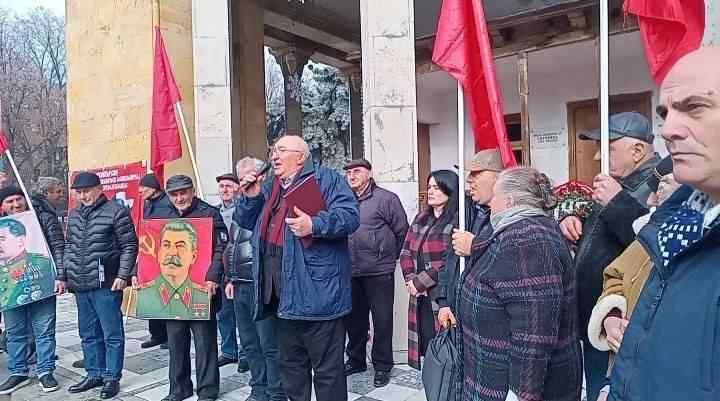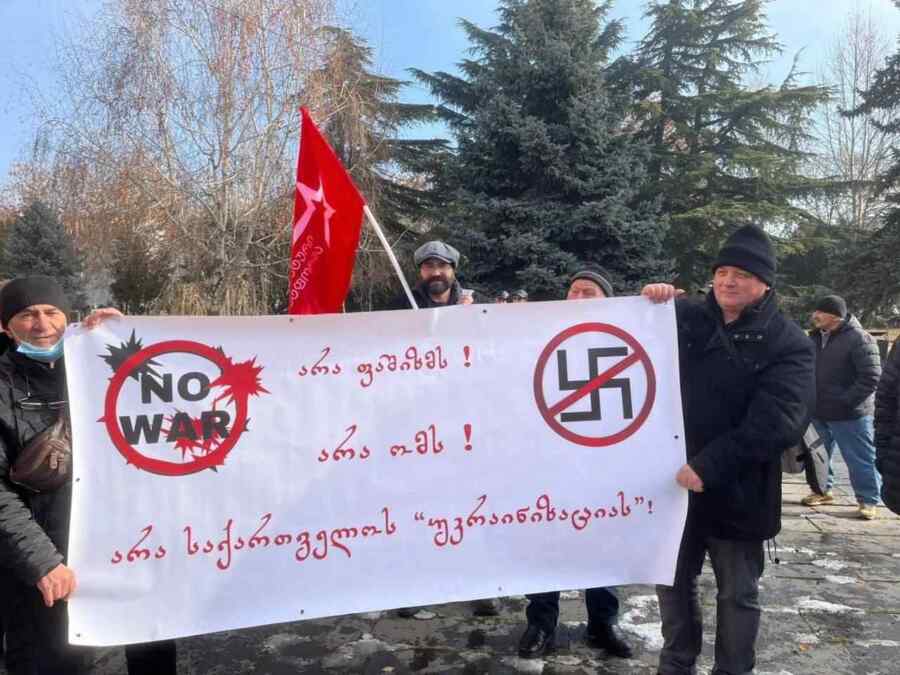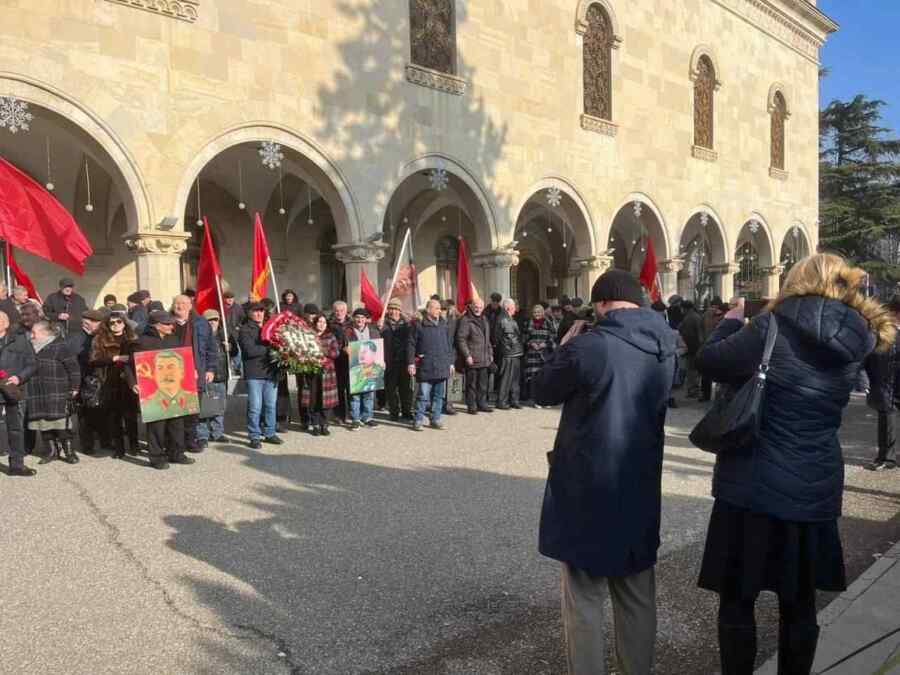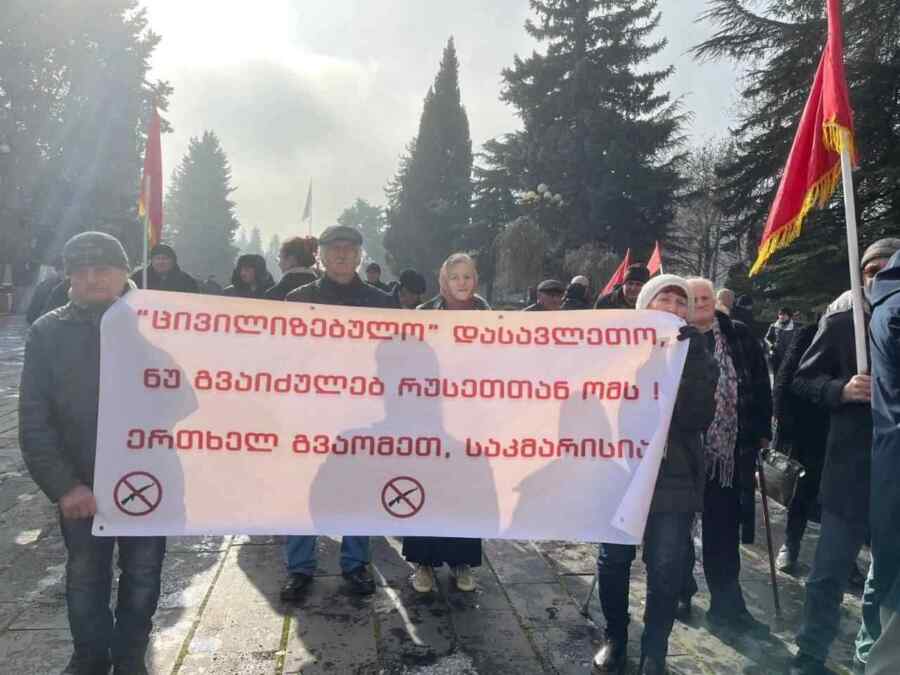The 145th anniversary of Joseph Stalin’s birth was celebrated in his hometown of Gori.
On Saturday, December 21, communists and socialists, who came from all over the country, traditionally held a celebration in honour of the 145th anniversary of Joseph Stalin’s birth. At the monument to the Soviet leader, speeches were read, slogans were heard, and the merits of the ‘leader of the peoples’ in the Great Patriotic War were talked about.
According to Timur Samnidze, chairman of the UCPG, ‘Stalin was a generalissimo, diplomat, Supreme Commander-in-Chief, and the victory in that war is his historical merit.’
Georgian communist Nikolai Davlianidze specified that people from different cities of the republic came to the event:
‘We gathered to honour the memory of Comrade Stalin, a great fighter against fascism, who managed to unite the people and achieve the Great Victory.’
Photo source: didisamamulo.ge
Seemingly ordinary words, but in Gori, they sound especially sincere – this is where the future Soviet leader was born and spent his childhood years.
The second notable moment of the celebration is the statement adopted by the participants of the rally. It speaks of the danger of ‘the strengthening of the ultra-right forces’ and the risk of a ‘pro-Western platform’ seizing power. There was even a call to reflect on the tragic fate of Ukraine and to prevent the Ukrainianisation of Georgia, which clearly reflects the tension in the local political field. The authors of the statement are convinced that if the current, albeit conditional, status quo is not preserved now, the country will be overwhelmed by a new wave of confrontation, which could turn into a more rigid authoritarianism.
In Gori, the attitude is often coloured precisely by pride in the fact that he was Georgian by nationality. This gives the figure of Stalin an additional halo of ‘cultural hero’, although officially the Georgian authorities have long distanced themselves from the cult of personality. But the memory is still alive in the people: in Soviet times, Stalin’s portraits were found in houses and motorists decorated their windscreens with images of the Generalissimo.
Photo source: didisamamulo.ge
So when the town of Gori again lays flowers at the monument and talks about the ‘Great Victory’ – it is not just a group nostalgia, but an act of cultural memory.
Not so long ago, the idea of returning Stalin’s remains to Gori, where he could be buried in a solemn and ‘Georgian’ manner, was bubbling up in Georgia. Such initiatives pop up from time to time: some see it as ‘restoration of historical justice’, others – an attempt to return ‘their hero’ to the country.
Photo source: didisamamulo.ge
December 21 is a symbolic date for the admirers of the ‘leader of nations’. In Russia, Belarus and a number of other post-Soviet countries this date is traditionally ‘celebrated’: red carnations are carried to busts, to monuments. So the annual laying of flowers at the monument in Gori is both a ceremony of remembrance, a political gesture and a kind of ‘sign of respect’ for the Georgian heritage.




